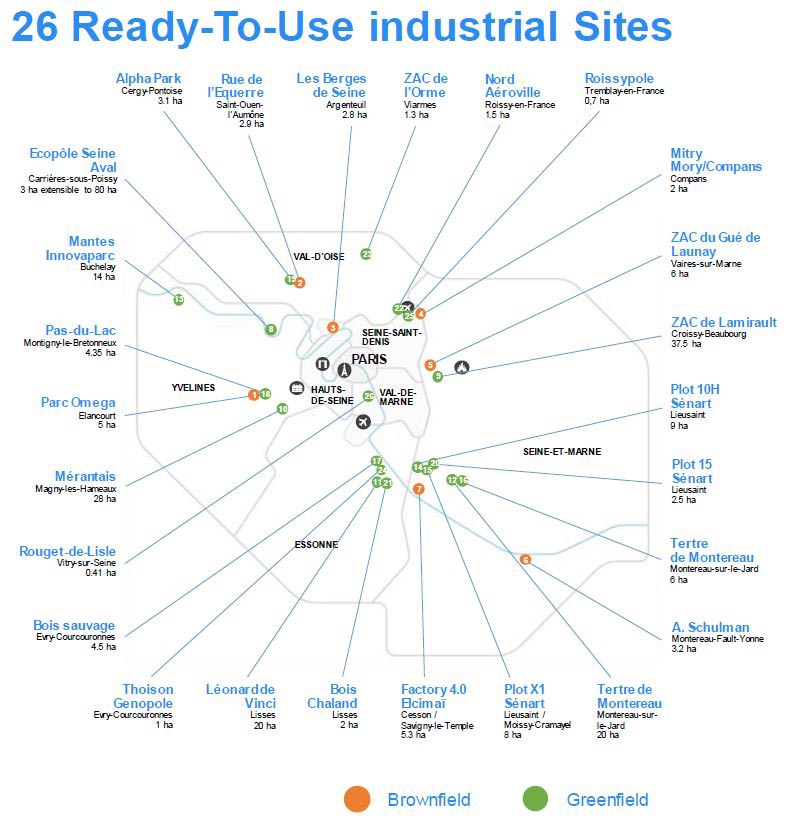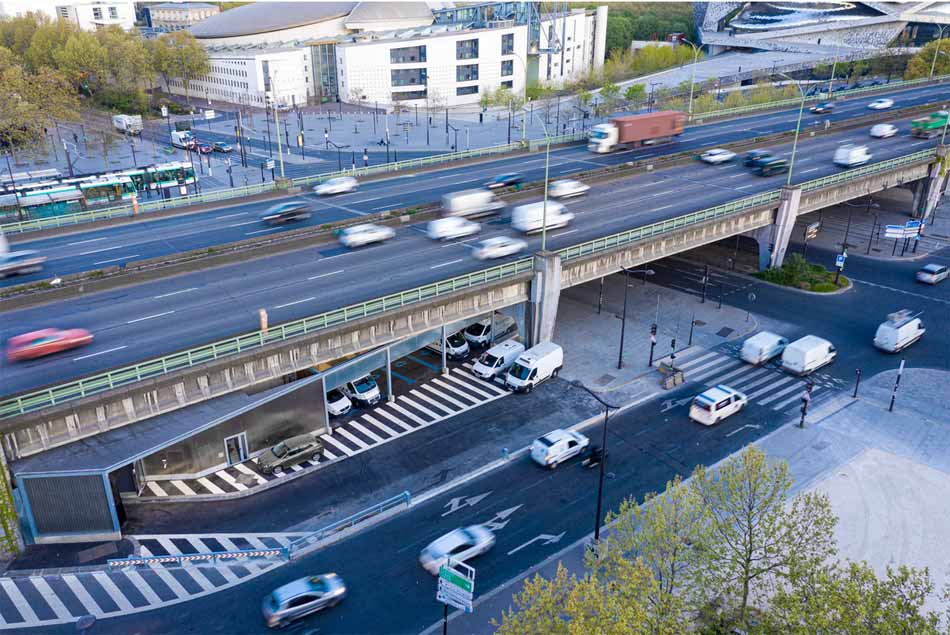
Paris Region extends a warm welcome to industry players
Intent on maintaining its attractiveness, Paris Region has taken up the issue of industrial relocation, a topic of public debate sparked by the health crisis. Today, several major regional projects are further enriching an already dense ecosystem, with the aim of promoting industrial activities in and around Paris.
Paris Region: an ideal location for industries
Paris Region has shown itself to be a natural home for high-tech and sustainable Industry 4.0. Its rich and diversified economic landscape features many cutting-edge sectors. The aeronautic industry alone accounts for 100,000 jobs throughout the region, while the healthcare sector boasts 219 pharmaceutical sites accounting for 16,000 jobs. Agri-food business provides yet another source of dynamism: 53,000 employees spread among more than 5,000 sites feed into Paris Region’s industrial fabric.
Thanks to an ideal location, the region is well suited to industrial activities. Served by the Grand Paris Express network, first-rate highway infrastructure, three international airports and access to the sea via Haropa – France’s largest port complex – Paris Region makes it easier for businesses to optimize supply chains while offering extensive access to the European market of 500 million consumers.
As the European capital of research & development, its reservoir of talents enjoys financial support from the regional government, as well as consulting services from the Choose Paris Region agency.
A breeding ground for a diverse range of industrial activities
Paris Region has undertaken a transformative quest for attractiveness involving a slate of initiatives to champion re-industrialization. Organized in clusters, the region’s various territories host ecosystems of international caliber that encourage new industrial projects.
To cite just one example in a metropolitan area certified as a “Land of Industry”, the Sénart Public Development Establishment (EPA), supported by business real estate specialist Elcimaï, stands out as a powerful facilitator when it comes to establishing factories of the future: modular, scalable and low-carbon.
To smooth the way for productive business activities, Choose Paris Region has identified 26 “Ready-To-Use” industrial sites for industrial players, all offering speedy and simplified administrative procedures.

Winner of the 2021 MIPIM AWARDS in the category of Best Industrial and Logistics Development, the P4 project, led by Sogaris, offers new perspectives for industrial business initiatives.
P4 is a next-generation urban community-based logistics site that aims to provide clean and responsible local service. Built on a brownfield underneath the Paris Ring Road, this business proves that it is possible to re-establish productive activities and jobs even in the tightest recesses of urban areas.

Proven expertise in cutting-edge fields
Because cutting-edge technologies help promote local development of high-value-added ecosystems, the region is leveraging its rich and diverse reservoir of talents to attract high-tech industrial players operating in a competitive international environment.
Such is the case for the Pontoise - Cormeilles-en-Vexin airfield in Val d’Oise, which has become a veritable hub of aeronautic innovation. Choose Paris Region, together with ADP Group and RATP, chose this site to host the testing area for flying taxis, which are set to enhance the Paris Region transportation offering as of 2024. Two experimental lines will be opened in the region, making it a trailblazer for advanced air mobility.
To best meet the needs of Tech businesses, the Paris-Saclay EPA provides special services for DeepTech companies incubated in Paris Region, ensuring easier access to the prototyping phase. With the help of Biolabs Europe, the EPA also launched the Carré Central program, located on the Palaiseau urban campus. This new 60,000 m² (646,000-sq. ft.) mixed-use neighborhood will feature co-working laboratories as well as a housing, retail and service offering. 16,000 m² (172,000 sq. ft.) will be set aside to create tech-commercial spaces for these same DeepTech start-ups.
The stunning rise of sustainable industry
Resource conservation is a key concern for Paris Region projects, as reflected in the magnitude of waste management and circular economy activities: 800 sites and 23,000 jobs. Long committed to territorial sustainability, EPAs reduce waste and consumption of new construction materials by re-using backfill. Following decontamination procedures, backfill serves to fashion a whole new landscape: artificial hills, landscaped hollows and retention ponds all contribute to rainwater management while promoting biodiversity. The fast-growing agri-food sector attracts nearly 80% of domestic investments, particularly for the development of local food systems. The organic co-op located in the Sénart Ecopôle illustrates initiatives in this domain: the co-op recovers vegetables from local farms and redistributes the produce to nearby schools. To support initiatives by actors in its community, Paris Saclay has established a list of farmers working in local food systems, featured on its “Eat Local” web portal. Finally, the Chapelle International project, led by the City of Paris, testifies to Paris Region’s commitment to sustainability. In this ultra-modern logistics building, heat generated by the data center in the basement serves to warm the greenhouses of the rooftop urban farm.
Call on Choose Paris Region for industrial investment expertise.

